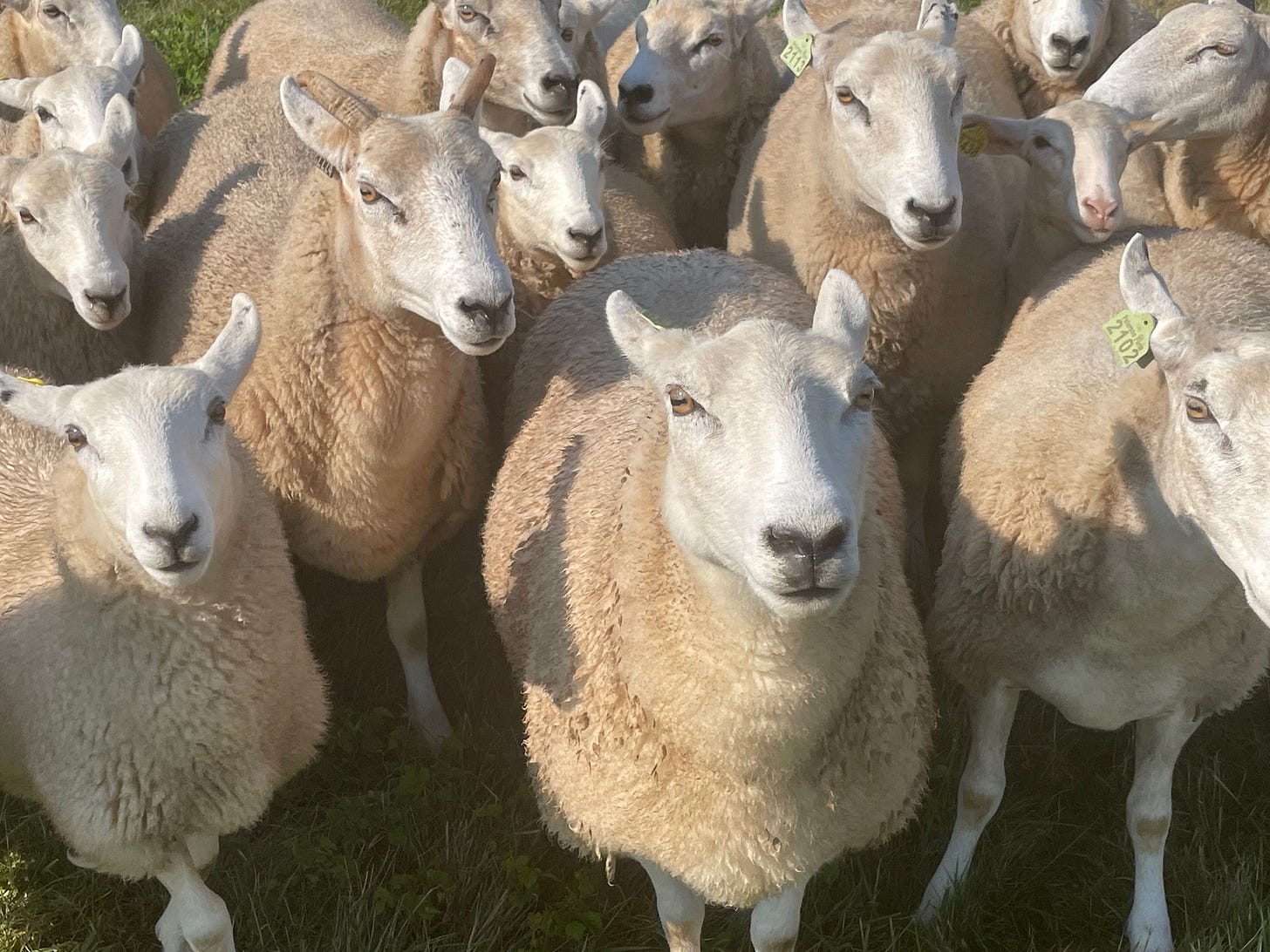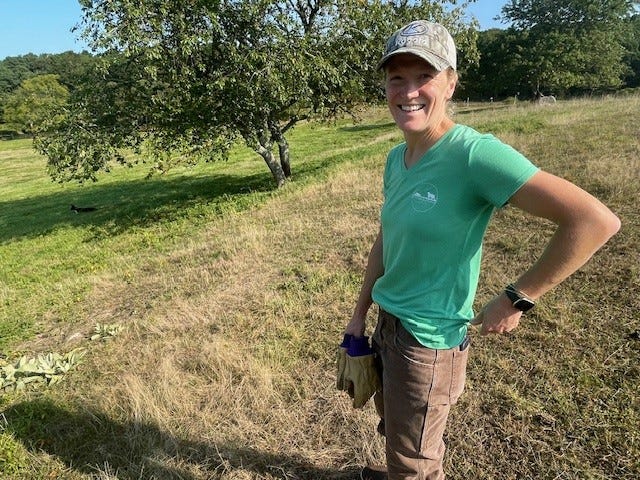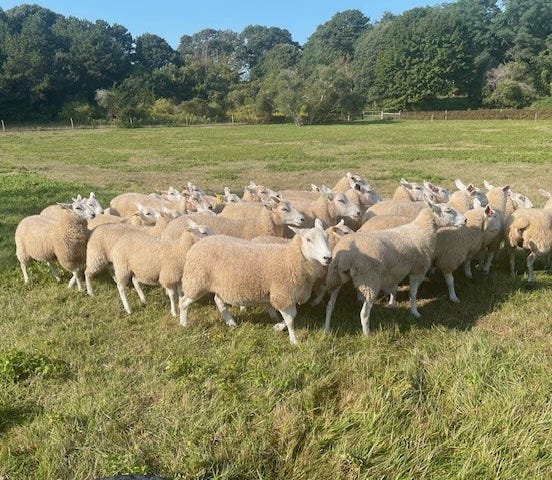Diana Wickman and her Border Collie “Bru” (short for “Bruiser,” which in truth she is far from) were ambling toward some of 48 sheep hanging out at Peterson Farm in Falmouth, Bru ready to herd at the drop of a hat — or rather, Diana’s voice.
The sheep watched their approach, alert, wary, maybe for good reason. There had been 71 of them in April, and most of those no longer around had been shipped to a butchery in Westport, returned as the sum of their parts; bone-out neck meat for stew, forelegs, breasts, rib racks, loin and sirloin chops. Come November more of the “boys,” ie rams, would be making the same trip, returning the same way.
But their wariness was not foreknowledge, just sheepishness.
“Funny, it was before my time — I’ve been involved here for 12 years — but it was really dog training that brought the sheep here,” said Diana. “My predecessor did sell some meat and wool but mostly it was about training for sheep dogging.”
It also was about grazing. The town of Falmouth bought this 88 acres for $3 million in 1998, protecting a family farm with roots to 1679. The goal was to keep at least some habitat open for quail and bobwhite, as well as hiking.
“They wanted a grazing tenant,” explains Diana. “Sheep are that, and they’re easy on the land.”
These days 15 acres are in pasture, abutting Beebe Woods which makes for a big swath of public open space by Upper Cape standards — and home to the only sheep farm on the peninsula.
Diana and her business partner Simon Thorrold (a New Zealander who grew up on a dairy farm) both have day jobs at Woods Hole Oceanographic Institute, fish biology for Simon, underwater robotics for Diana. They split time with the sheep early mornings and late afternoons.
“Simon and I haven’t made money but we haven’t lost,” she figures. “Maybe a better way to put it is that we are constantly reinvesting whatever we do make; it’s a labor of love.”
People think wool when they think sheep, but the first flock were Katahdins, which don’t grow wool. Now Cheviats are on the land and they do, but trying to make wool work financially is tough. Just the investment to shear, on top of everything else involved, is $10 a head for around six pounds of fleece, with only a handful of people in New England doing it for hire.
And there is no steady demand; there have been times when the farm offered fleece free to gardeners to use as mulch, “and even that died away. We literally couldn’t give this stuff away.” Now there is interest for comforters, a fine use for at least some of 100 pristine pounds a year, so that’s a help.
Meat is the breadwinner. Customers plunk down $100 upfront which pays for the butchering and reserves a mix of cuts, each individually frozen and packed into a container about the size of a milk crate. That’s half an animal, 25 pounds dressed, $19 a pound, balance paid at pick-up. Fall production might be 30 halves, spring more like 15 or 20, so about 50 people a year buy shares.
Diana and Simon’s farm has a great advantage given that they don’t have to carry the land (though do pay for fences, maintenance and such); the town welcomes them to keep fields clear, acting as great community spirits and stewards. With solid, creative day jobs just down the road, daily demands can be juggled while sheep fend for themselves a fair amount.
Diana figures none of this would be possible without dogs like Bru; five Border Collies are around and about. When local school kids come to visit, Diana likes to enlist a student to try to herd the flock. They never can, the sheep bolt, everything gets jumbled, and then she’ll give Bru a voice command and suddenly all the animals are gathered in an orderly oval.
“It’s cool because then they understand how well these dogs do their job,” she smiles.
Here’s one more interesting twist to this unique vignette:
Before Diana took on sheep farming, she was a vegetarian for more than five years. Her close relationship to these animals, the land and their lives, knowing how they’re treated and where the lamb is coming from, changed that.
“Every week for sure,” she says, when asked how often she eats meat from her farm.
Haven’t subscribed yet? With all due respect, why not? Make it possible to see a Voice and support good reporting, strong perspectives, unique Cape Cod takes every week. All that for far less than a cup of coffee. Please subscribe:
https://sethrolbein.substack.com/welcome
And if you are into Instagram, want to see some additional material, maybe share the work, here you go:









